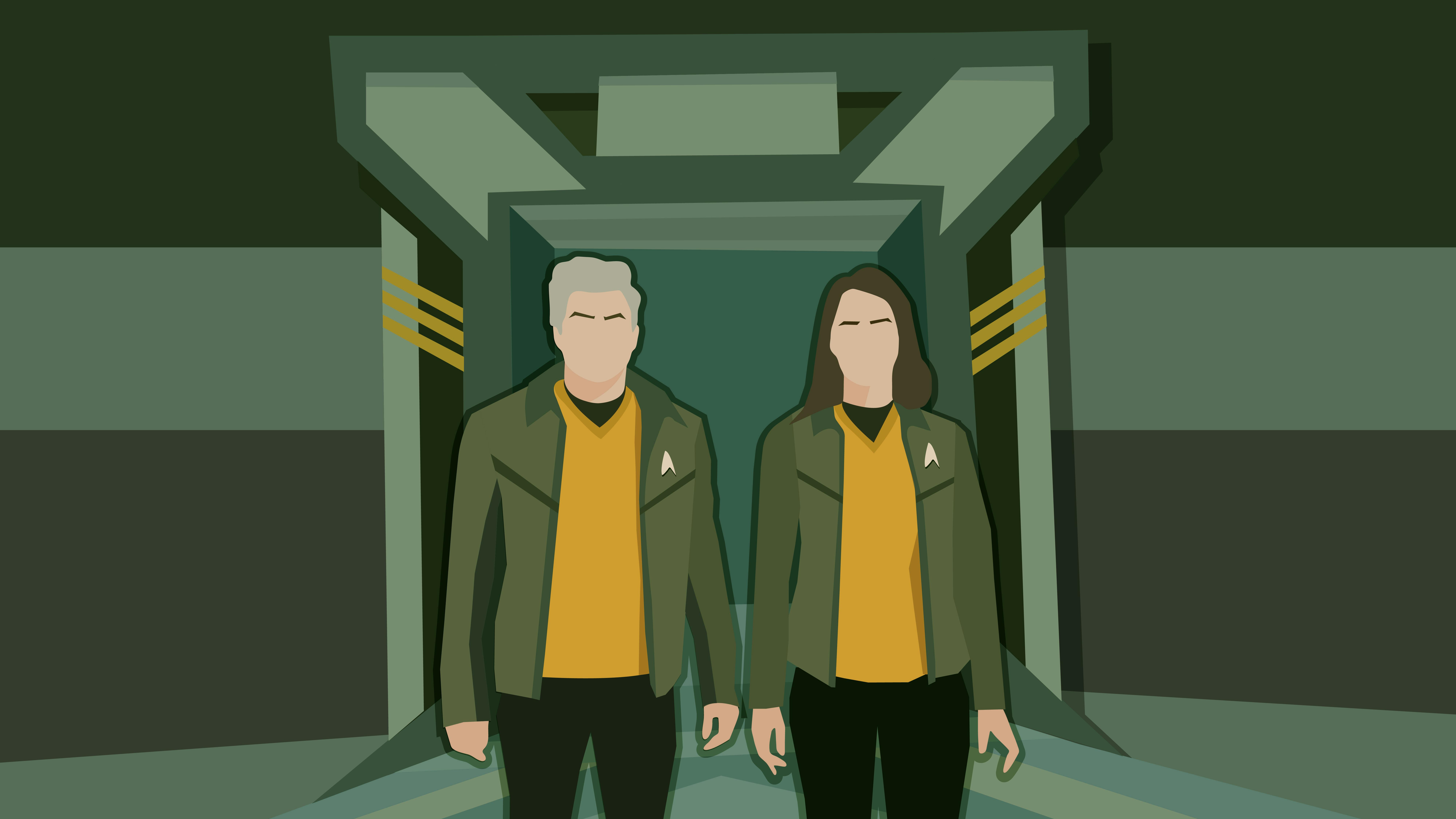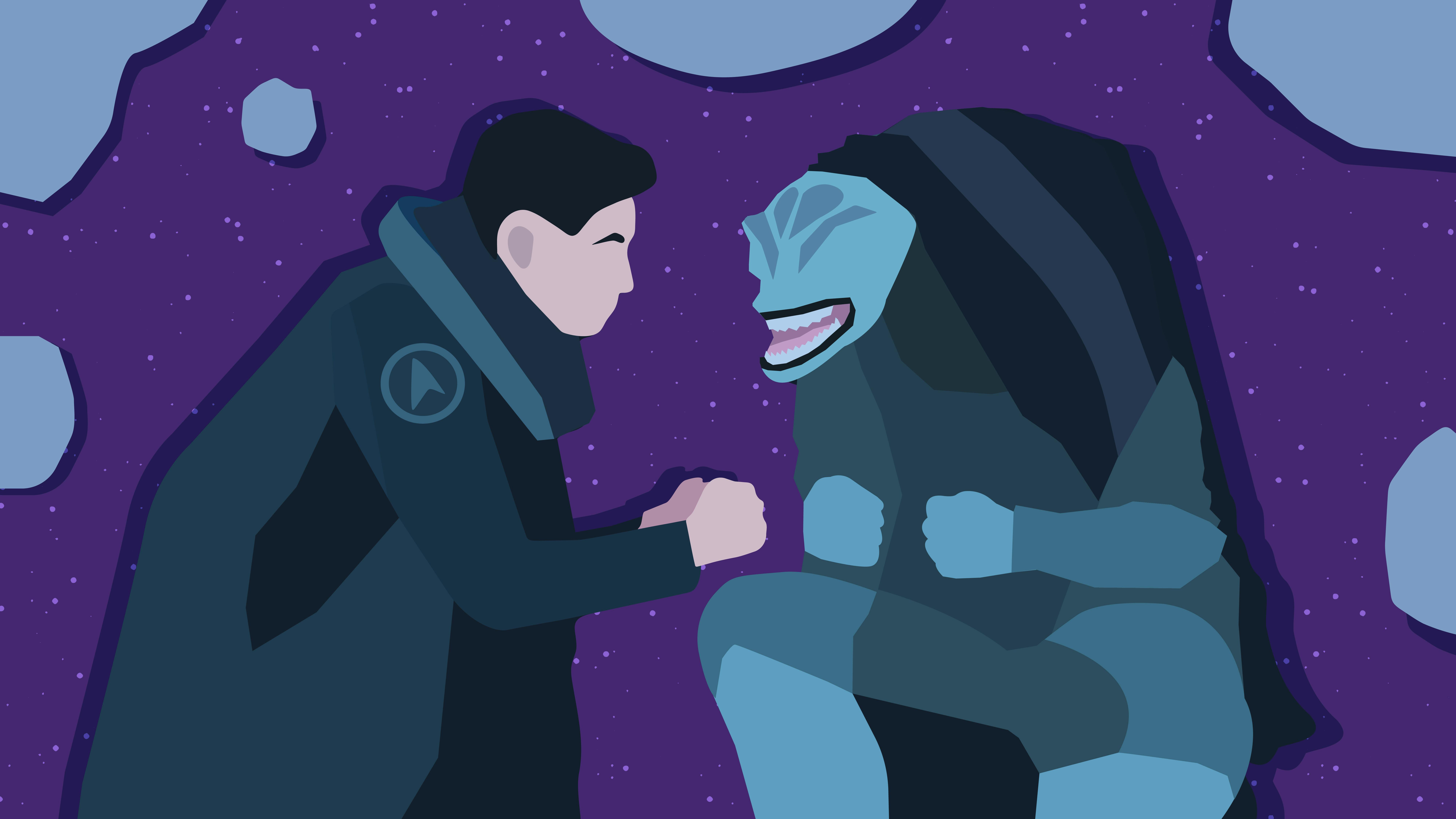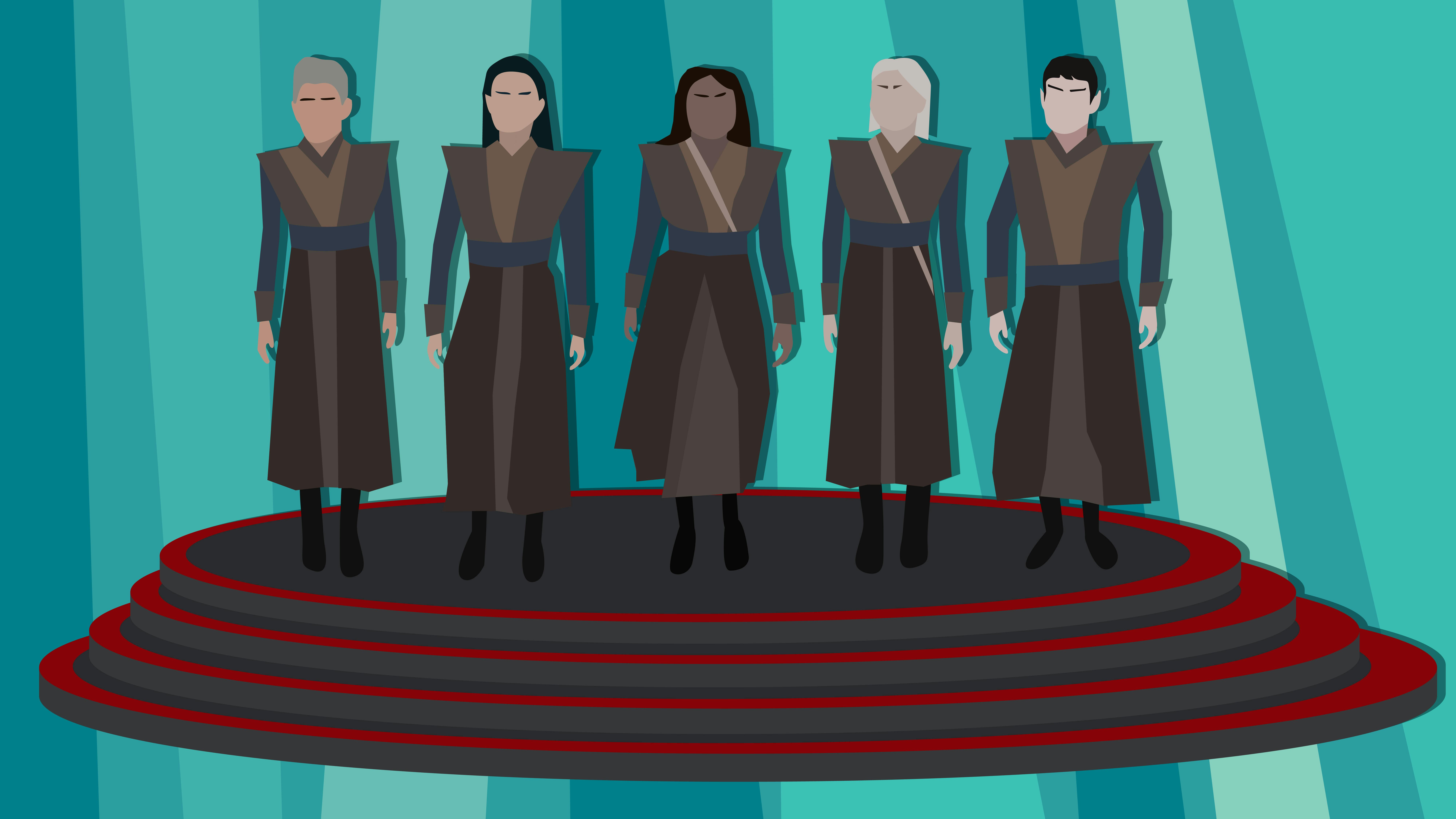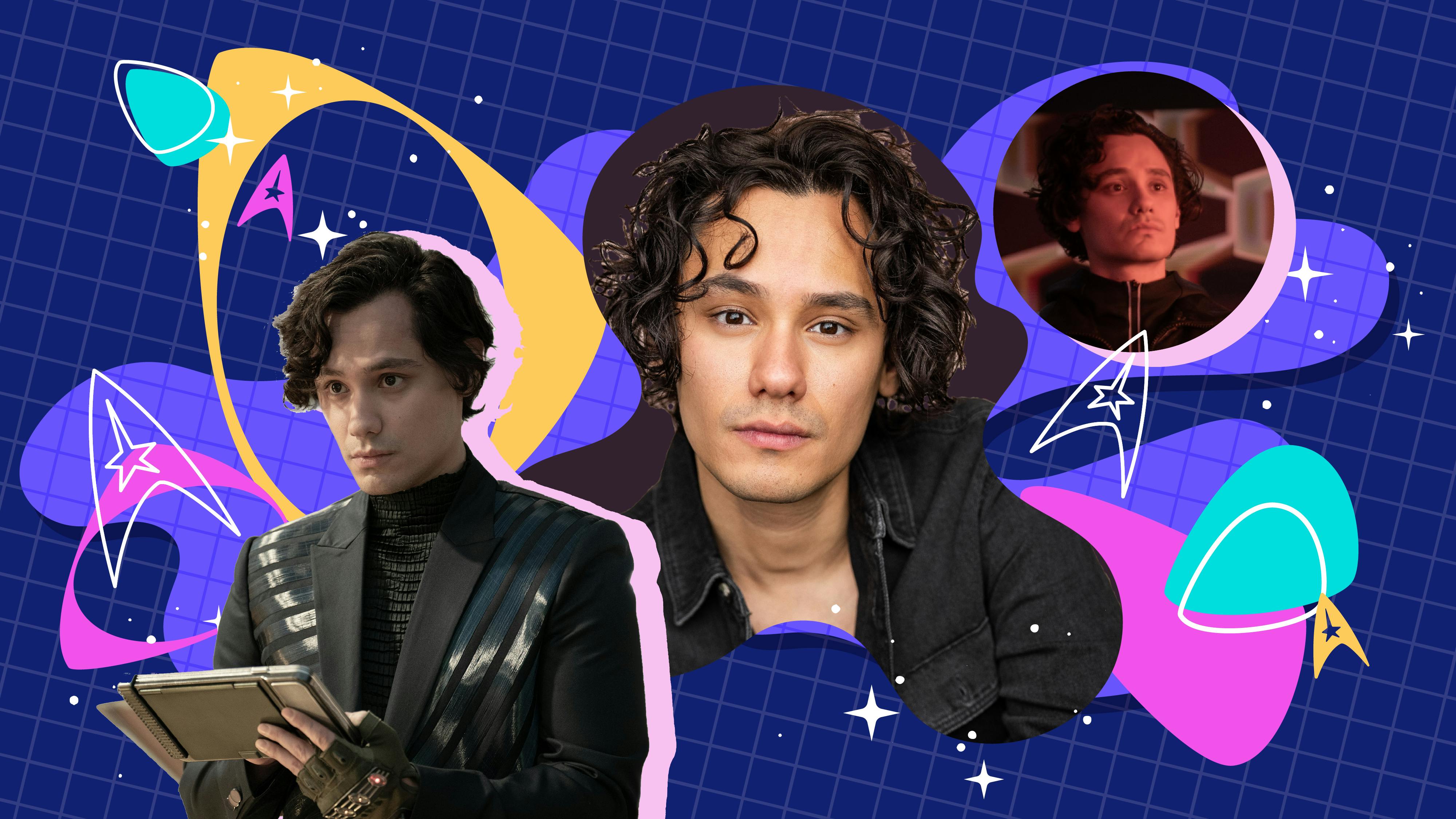Published Aug 28, 2017
Mary Chieffo Talks Discovery, Becoming a Klingon & More
Mary Chieffo Talks Discovery, Becoming a Klingon & More
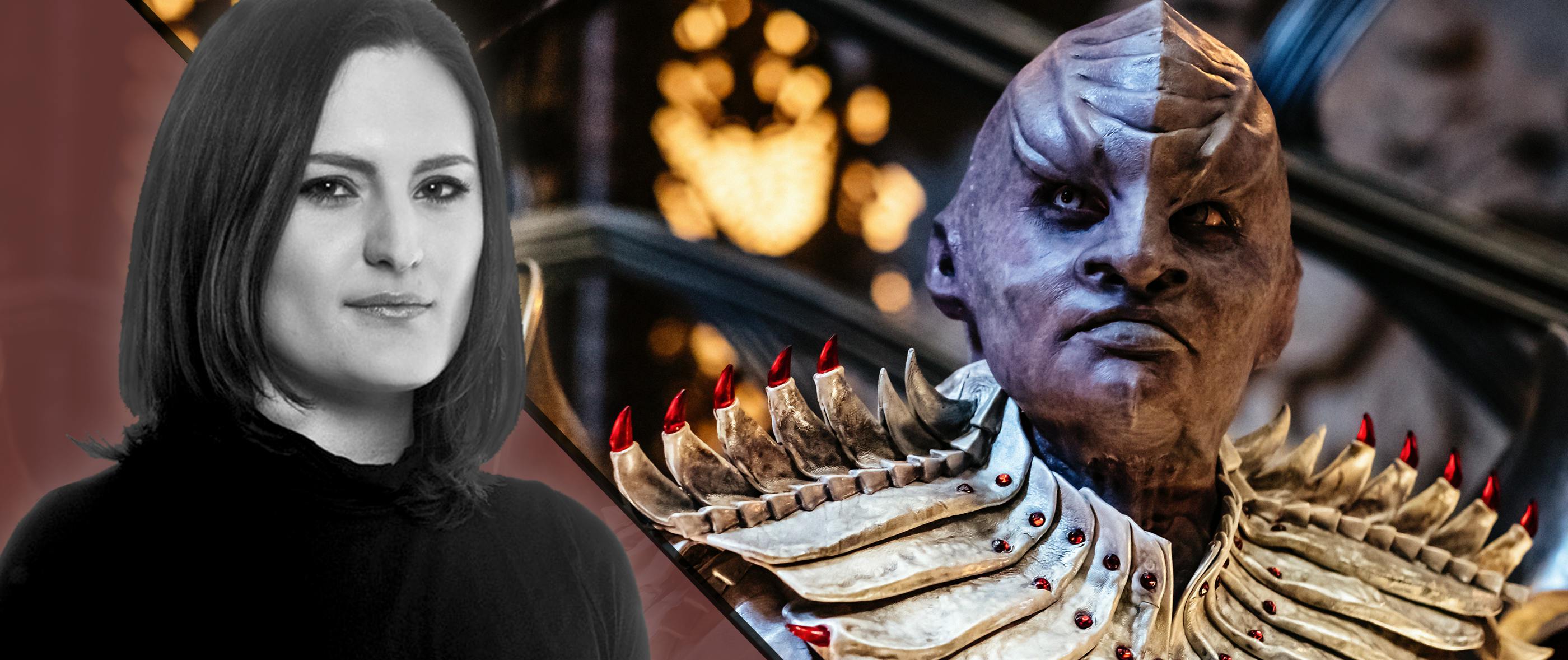
The time has come. Star Trek: Discovery will premiere in just a few weeks, and so StarTrek.com is ready to take fans deep into the series via conversations with the stars and the behind-the-scenes talent bringing to life not just Discovery, but its tie-in entities, including the novels and comic books. Today, we talk with Mary Chieffo, who plays L’Rell, the Klingon battle deck commander, on the show. StarTrek.com conducted this interview with Chieffo – who is very tall, ultra-friendly and super-jazzed about Discovery – in person during Star Trek Las Vegas. Chieffo told us that she was long aware of Star Trek, but didn’t really get into the franchise until the J.J. Abrams films. Then, when she landed L’Rell on Discovery, she sat down and watched every Klingon-heavy episode she could get her hands on. Here’s the chat:
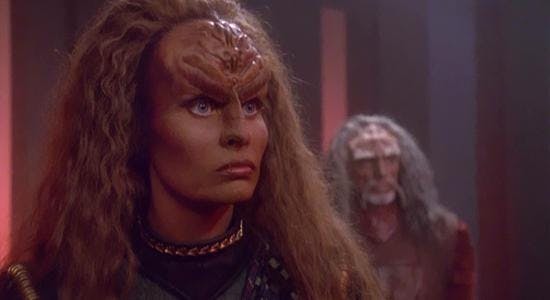
Which Star Trek series and which Klingons made the greatest impact on you?
Well, you know, it's funny because it's one that keeps coming up when we're talking about serialized Star Trek is Deep Space Nine, because those last three seasons really do start to have a new, serialized quality. Somebody on Twitter yesterday said, "Has she watched Deep Space Nine?" Or something like that. I was like, "Yeah, actually. In those last three seasons, I got so caught up in the plot that I stopped just watching the Klingon-featured episodes, because I felt that it became extremely profound." I think it's got so much nuance, and all the characters are so wonderful, and lovable, and the way that they really get to evolve and develop is wonderful. Of course, I have a soft spot for Odo. Then, I think about the great female Klingons on the show, and one of my favorites, Grilka, comes in
Why is she one of your favorites?
Grilka is definitely at the top, first of all, because she's full Klingon. I love K'Ehleyr and I love B'Elanna, but they're both half-Klingon. B'Elanna, like we see with anyone who's half and half, is they have that internal struggle. I love watching that, but certainly for me, since L'Rell is full Klingon, seeing Grilka, I love her story of eventually becoming the leader of her own house. Klingons are so patriarchal, so that was a great way to explore that story, in both episodes that she's in. Her relationship with Quark was so fun and wonderful, and she just owned herself in this great way. There's something about that I've tried to transfer to L'Rell, and it’s that her strength and power don't negate her sensuality. Grilka is the one that really always comes to mind.
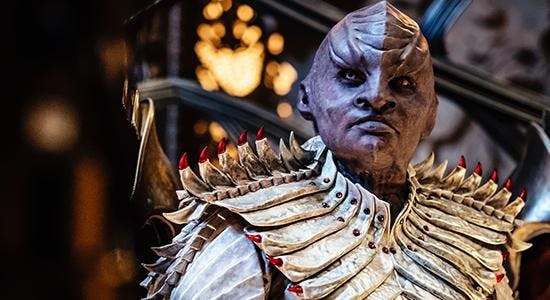
Following your auditions, how did you get the call that you’d won the role of L’Rell?
It came in through my agents. It was crazy because it was percolating for a long time. I feel like you know that something's happening, but you didn’t quite know for sure. Eventually, we got the offer on paper, and that's when it really set it in. I was in New York, and I couldn't tell anyone for the longest time. This was last August and I was one of the first people cast, because they needed to start getting those people (in makeup) on board. I was in New York visiting people, and of course, from that point on, I couldn't tell anyone, but they were like, "You seem happy."
As much as we know about the Klingons, there’s so much we do not know. How cool is it that this series is almost as much about the Klingons as it is about the Federation?
Well, as a Klingon, it's very cool. What's been so beautiful is to have scenes where, yes, we're speaking Klingon, yes, we're in these full prosthetics, yes, we've got our armor on, and I would turn to my scene partner and I'd be like, "We're doing a scene. We're feeling feelings. We're getting to explore the intimate moments." That was a huge emphasis, too, with the language, that it's not just barking. It's got a fluidity and a nuance. I think that this exploration of “the other” is exciting, and I think that we really are going to get a great window into both sides. I'm speaking to this because it really did strike me, just like the other week, how the Federation perceives me, L'Rell is very different from how, say, Kol (Kenneth Mitchell), perceives me within the Klingon world. Who I am, to him, is very different. That’s something we haven’t seen. Usually, it's like all the Klingons are on the same side, and we don't like the Federation. Ultimately, we do unite against a common enemy, and that's the best way to get people together.
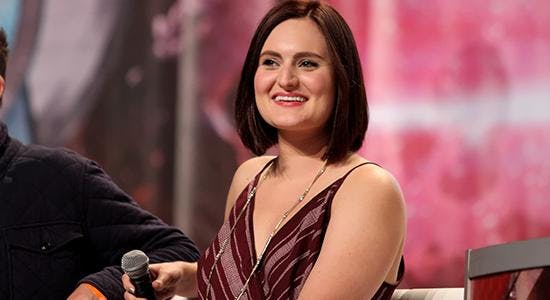
Would you say you’re acting with or through the prosthetics?
I would say with it. I think that's the mentality, for sure. I've talked to Doug Jones about this a lot, who's obviously done it a few times. You have to have that emotional core. If anything, you almost have to be more grounded in the emotion, because you can't fake it. I have found, there is this kind of mumblecore post-Brando form of acting that is really great and good in the right circumstance, but that is not good for being a Klingon. I've always gravitated towards heightened things, singing, Shakespeare, movement, and the masked. Also, it's not a mask with L’Rell, it's a prosthetic. There are masks that you put on. This is a prosthetic. It is a prosthetic that has a very specific application. Also, we can't eat in costume. We have the Klingon cleanse smoothies. We have a great nutritionist, and she puts real, substantial stuff in there. It's all vegan-based. That kind of keeps me centered, too. I'm not eating big meals. I'm kind of in the zone.
How immersive are the Klingon sets? The Klingon ship sounds insane.
Oh, my goodness. That first moment of walking on the ship, it's unreal. It's a cathedral. It really does help to have it, and they've been speaking to it a bit this week about how they wanted as much as possible to be practical. Of course, we can't actually have space out the oculus, but other than that, to really feel the weight of the bridge and the stairs, it's so meticulous. Because we're really redefining the Klingons, there's real detail, and such a sense of beauty and culture. I think it just helps make you believe it.
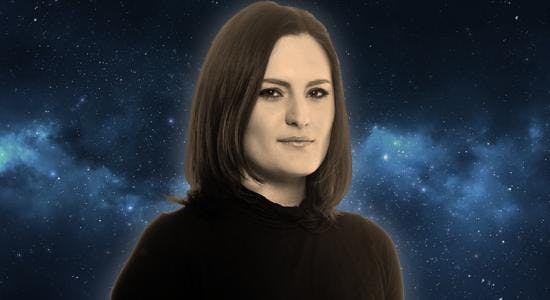
What’s it been like to speak Klingon?
Ah, yes. I love it. I've reached the point now where I can read and write it pretty well. I’m still not fluent, because the syntax is opposite of anything I know, but it's a really ultimately liberating process. Often in film and TV, it’s, “OK, we're going to show up on the day, and we're just going to find it and capture that lightning in a bottle." We can’t do that because we have to memorize the meaning of each word and the structure of each sentence, and make sure you really understand it logically, so that you can then inhabit it emotionally. I spend a lot of time with our dialect coach, Rea. We have these two-hour sessions where we go through and she helps me refine the sounds.
Then, what has been great, too, is my scene partners…, like Kenneth Mitchell, who is an angel. It's so funny. We joke about the Klingons. We're like, "Such sweet people." We get together and we rehearse it in English, then we go back and we rehearse it in Klingon. We have the back translations, each word's meaning. We'll go sentence by sentence and make sure that, "Oh, that's a very key word that I want to respond to." For me, it really does bring me back to when I work on Shakespeare, which is that so many of the words we aren't familiar with and you need to have those definitions. Then, once you know it, especially with the Klingon, it's a little bit different, because this will be subtitled, but if you know what you're saying, that emotion comes across.
You're going to be a fresh face for a lot of the people watching Discovery. What’s your background? How and why did you pursue acting?
Well, for me, my funny story with getting into acting is that both of my parents are actually character actors. I grew up in L.A. Until fourth grade, I thought that everyone was an actor. What I realized was I had a friend talk about her dad being a doctor, and I was like, "Right, and then he goes and acts." Around fourth grade is when it started hitting me that, “Oh, no, all these imaginary games I liked to play, that's specific to me.” My best friend Eve and I started filming each other making movies. We were obsessed with sci-fi/fantasy, creating our own versions of that.
Then, in middle school, I got into the performing arts magnet, Millikan. I got into their musical theater program and I became a theater geek. Then, in high school, I went to Campbell Hall and had an amazing drama teacher, Josh Adell, and did really delve into the work behind the fun. Then, when I was looking at colleges, when I stepped into the halls of Juilliard for my first little tour, I was like, "Oh, I really want to be here." It just felt right. I had a friend go and tour it, and he was like, "Yeah, it felt like you." It was weird and it was interesting because my dad had gone there, but he wasn't pushing me in any way.
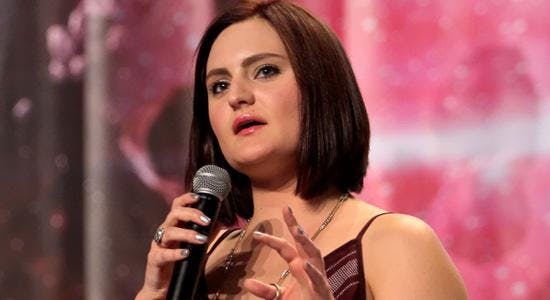
You had audition to get into Juilliard, right?
Right. The audition process happened, and I ended up getting in. The one thing I say about the transition from high school to college is that acting went from my escape to being my constant reality. I'm so grateful for that because the stamina that I built at Juilliard has transferred so beautifully to what we do on Trek. Hours, yes. Just the stamina. The Shakespearean quality of it. The fun fact, too, that I love is that (Discovery co-star) Mary Wiseman and I were in the same class at Juilliard. It's been such a beautiful experience being reminded of the hard work that we do and the stamina that we build, and the respect for our different archetypes, the fact that I can't do what she does. It's wonderful, and I adore her. Everyone keeps talking about how she's a comedic genius, and I second that, and third that, and fourth that.
Star Trek can be a game changer for an actor. How ready are you for that element, and also, you're going to be behind the prosthetics, so how helpful is that, in that you'll be able to walk down the street a bit more anonymously than some of your co-stars?
Well, if somebody does recognize me, I'm going to be like, "You really know the show." I think it'll be very interesting. What I've always loved about acting is the transformation, is being able to tell a story, not have it be about me as Mary looking good. It's always about, "Who is this character? How does she look? How does she live? How does she breathe?" This is such an extreme version, it's kind of remarkable. Because of the way I feel she fits into the story, fits into Star Trek, because I'm so proud of what she represents, I just really feel that it takes my ego out of it and makes it about the larger story that we're telling in Discovery. I'm so thrilled that the Klingons aren't one-dimensional. L'Rell is definitely… she's six dimensional. There's so many aspects of her and I'm constantly being challenged and being allowed to explore different aspects of myself. I really do hope that there will be young girls and boys who can strangely relate to her or understand where she's coming from. Just like with all of the characters on this show, I really think that they'll see that.

